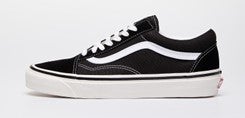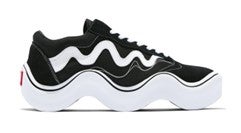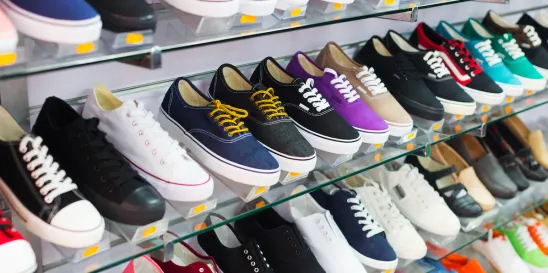On December 5, 2023, the Second Circuit Court of Appeals issued a precedent-setting decision in favor of the prominent skateboarding footwear and apparel brand, Vans.
The decision centered on the satirical art collective MSCHF’s product, the Wavy Baby sneaker, which Vans contended infringed their signature Old Skool shoe. The decision has implications for creators across industries, as it explores the delicate balance between upholding trademark protections and preserving the freedom of artistic expression.
The dispute arose when MSCHF released its Wavy Baby shoe, which Vans claimed violated its registered Old Skool trade dress. Vans alleged that the design elements of the Wavy Baby shoe closely resembled the iconic Old Skool design, resulting in consumer confusion. Vans sought a temporary restraining order and preliminary injunction to halt the sale and marketing of the Wavy Baby shoe.
In response, MSCHF invoked the First Amendment and argued that the Wavy Baby shoe was a parody work of artistic expression and therefore protected by the First Amendment. MSCHF asserted that their artistic reinterpretation was a commentary on the dichotomies encapsulated by the Old Skool shoe, which straddles “niche and mass taste, functional and trendy, utilitarian and frivolous.”


Van’s “Old Skool” Shoe MSCHF’s “Wavy Baby” Design
The court found that the Wavy Baby shoe lacked elements of satire or humor that would clearly differentiate it from Vans’ trademark. MSCHF’s admission that the Wavy Baby concept started with the Old Skool shoe was held against them and viewed by the court as an attempt to leverage the established goodwill of the Vans brand. The court pointed out that while MSCHF was free to critique sneaker culture and consumerism, it crossed a line when it used Vans’ trademarks to identify the source of its own product. The court also rejected MSCHF’s claim that the Wavy Baby shoes were intended to be works of art, not functional shoes, noting that MSCHF had marketed the Wavy Baby shoes as wearable footwear and they were competitively proximate to Vans’ own products. After finding evidence of consumer confusion, the court affirmed the district court’s preliminary injunction prohibiting MSCHF from selling or marketing the Wavy Baby shoe.
Key Takeaways
The affirmation by the Second Circuit holds significant implications as it establishes a clear boundary for the use of First Amendment and parody or satire defenses in the realms of art and fashion. While the holding reaffirms the protection of freedom of expression, it also underscores that such freedom does not extend to misleading use of established brands that could potentially confuse consumers about a product’s origin. The blurred line between artistic expression and trademark infringement requires careful navigation of intellectual property rights by artists, brands, and creators.
In light of this case, businesses should exercise caution when drawing inspiration from existing trademarks and trade dress, particularly when the resemblance could potentially mislead or confuse consumers. If a company intends to create a parody of a third party’s design, it should ensure that the critique or humor is clearly expressed to differentiate it from the original and that the underlying reference is not used in a misleading or source-identifying manner.






 />i
/>i
